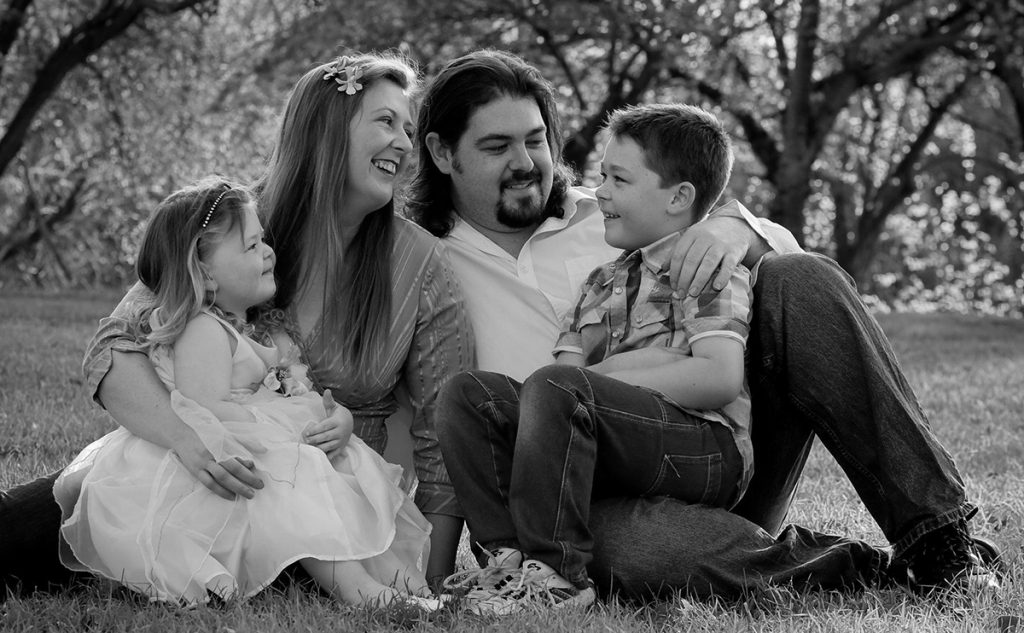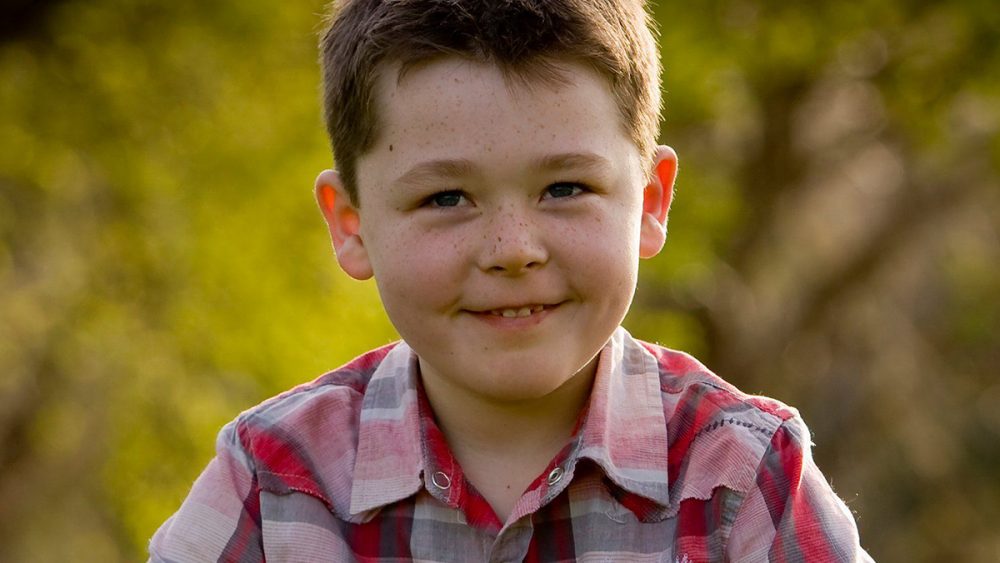Grieving the death of a son
What every parent fears happened to Sonja and Bill Howard
“I had gone in to wake him up for school,” remembers Sonja Howard about her 10-year-old son Ezekiel (“Zeke”) on a September morning in 2011. “We had this little routine where I would put my face next to his and just stroke his hair because he was very reluctant to get up most mornings.
“This time I felt his skin was cold and his body was stiff. I started screaming for [my husband] Bill.
“I was in profound shock.” – Sonja Howard
“He knew what he was looking at but I didn’t. I didn’t understand that he was dead. I had never seen a dead person. I was in profound shock and I was looking at this little boy – this is really embarrassing – but I thought that he was frozen.
“I told Bill that he’d been frozen and that he needed to put him in a hot shower and thaw him out.
“I mean, who wakes up and finds what looks like a healthy 10-year-old boy dead? Who does that happen to? And it happened to me.”
The Howards were angered and dismayed by this lack of clarity …
Almost six years later, the Howards have had to deal not only with a heartbreaking personal experience of their son’s death at their home in Colo Heights, New South Wales. They also have had to navigate the public pain of coronial inquests into Zeke’s death, respond to failings in the NSW health system – and come to grips with how the God they love could let this happen.
It was not until late last year that the NSW Coroners Court delivered its ruling on the cause of Zeke’s sudden death. Although Zeke displayed symptoms several months before of a possible stroke, and a hole in his heart was discovered after his death, an autopsy was deemed inconclusive. His cause of death was listed as “unascertained natural causes (possibly sudden unexpected death in epilepsy or cardiac arrhythmia).”
The Howards were angered and dismayed by this lack of clarity, particularly as the Nepean Hospital that treated Zeke before his death had accidentally deleted two months of heart scans, including Zeke’s. Sonja and Bill can only lament the difference they might have made.
“The fact is they deleted records that would have definitively proven what caused the death of my son,” says Sonja. “And it also would have safeguarded my living children.” Sonja now finds herself in the “ridiculous” position of asking doctors to safeguard the lives of her other children from an “unascertained” cause.
“But I’m leaving [Zeke] in God’s hands. I know he is a God of truth and justice,” she says.
“I have to hold on to God because there’s nothing else.” – Sonja Howard
“I had a judge several years ago who told us there would never be an inquest into this matter. They didn’t have the resources was his reasoning. I prayed on the steps of the NSW Coronial Court that night, like a ‘mad woman.’ I cried and wept before the Lord – and then we got an inquest. So I know God works miracles.
“The paradox is, of course, that I don’t have my son any more. But I have to hold on to God because there’s nothing else.”
The Christian couple make no effort to conceal the struggle it has cost them to get to this point of leaning on God. “I was so angry with God,” confesses Sonja. “I used every foul word that I had at my disposal to yell at God, and then my husband … brought me a cup of tea. I said, ‘He’s not real. He’s not real.’ My husband just looked at me sadly and said, ‘Then who are you talking to, sweetheart?’ ”

Sonja and Bill Howard, with their daughter Epiphany and son Ezekiel. Sonja Howard
Bill Howard’s response to Zeke’s death had one significant difference: four years ago, Sonja experienced a mental collapse. Bill stoically helped his wife recover from a “catatonic” state after they learned that a Sydney pathologist had not measured one of Zeke’s key cardiac areas. Confronted by another “key piece of evidence that was now gone,” Sonja – a high school teacher – fled the Year 12 class she was teaching and “ran down the street, pulling out chunks of my own hair, screaming.”
During the past few years, Bill and Sonja first moved out of Colo Heights to regional NSW before settling in Central Queensland. The family’s shift north – with young children Epiphany and Silas – came about because Bill landed his first job as a high school chaplain (at three schools in the Clermont area). Bill began theological study after his intense period of seeking answers in the wake of Zeke’s death.
“I went down every other path I could think of,” explains Bill. “I looked at all the other religions. I looked at evolution and naturalistic origins and that sort of stuff. I just found that they all led nowhere and [Christianity] was the one that had the most credibility. And it was the only one that had someone who said they could fix this.”
“I would like to be able to be that light and hope for others because I’ve been through it.” – Bill Howard
Bill describes himself as a “lukewarm” Christian before Zeke’s death. But, like Sonja, Bill has come to rely upon the claims of Christianity more wholeheartedly. So much so that he became convinced God could use him, as a chaplain, to help others.
“I would like to be able to be that light and hope for others because I’ve been through it. I’m qualified in it. I’ve been through such stuff – some of it is just not mentionable; you can’t actually do it in an interview like this,” he admits. “But we have seen some stuff – and most people don’t believe us – but I want to be Christ to other people.”
One of the crucial things that has crystallised for the Howards is the potency of forgiveness – a power they continue to lean on. Bill and Sonja are comforted that God knows what happened to Zeke. The God they trust in promises justice and love in an ultimate sense, which enables Sonja and Bill to forgive those who may have contributed to Zeke’s death.
“What I know about forgiveness, like all Christians, I suppose, is that we have to forgive for our own wellbeing and because our master forgives us,” Sonja says. “It is hard when it’s the shed blood of your baby. Again, I think, well, Christ has shed his blood for me.”

